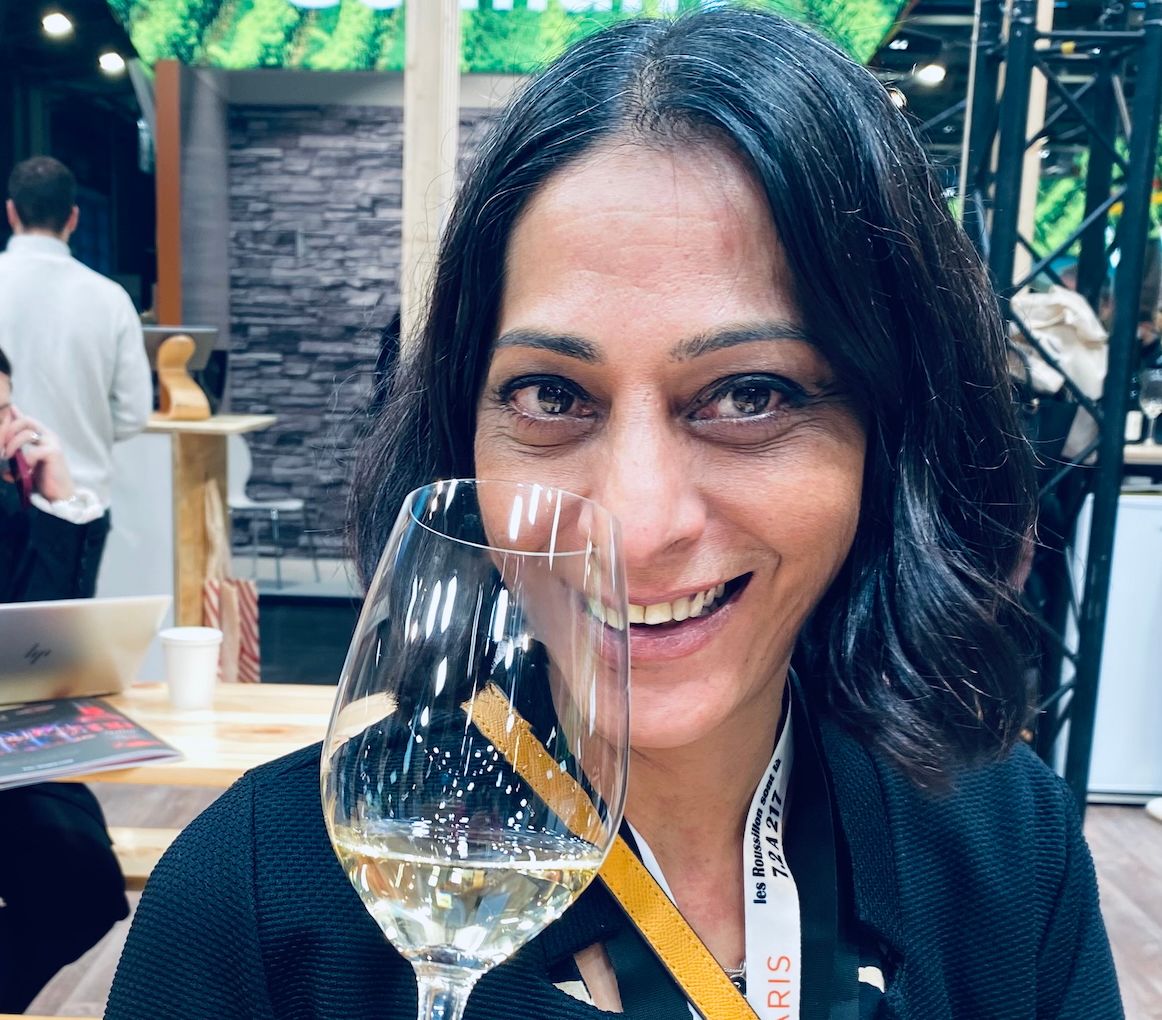I never thought I would be starting a feature with a satirical sketch from the BBC comedy show Goodness Gracious Me. Fronted by Sanjeev Bhaskar, Meera Syal, Kulvinder Ghir and Nina Wadia, the witty show’s most fondly remembered sketch is “‘Going for an English“EnglisEnglish.’ It was a moment where common curry house antics were satirised in pitch perfect parody.
It starts with a group of British Asians heading out for their weekly trip to an English restaurant.
“That’s just what you do, after you go out and get tanked up on ‘lassi,” says Bhaskar’s character.
When the waiter introduces himself as James, the diners giggled and announced that they “can’t understand a word” he is saying.”
The group laughed and pronounced the waiter’s name wrong. Is it “Jah-mez,? Jams?” Before commenting on the paleness of his skin, “so lovely and pasty,” before returning to order.
When actor, Kulvinder Ghir, enquires about “the blandest thing on the menu,” it’s treated as an act of machismo and heroism.
Scampi is on offer and the group orders 24 plates of chips. The sketch comes to an aggressive end, when the waiter informs the group that he thinks they may have ordered “too much.”
“Who bloody asked you, eh?!” shouts Ghir, before the group pounces on the waiter and chase him off.
Fear on the streets
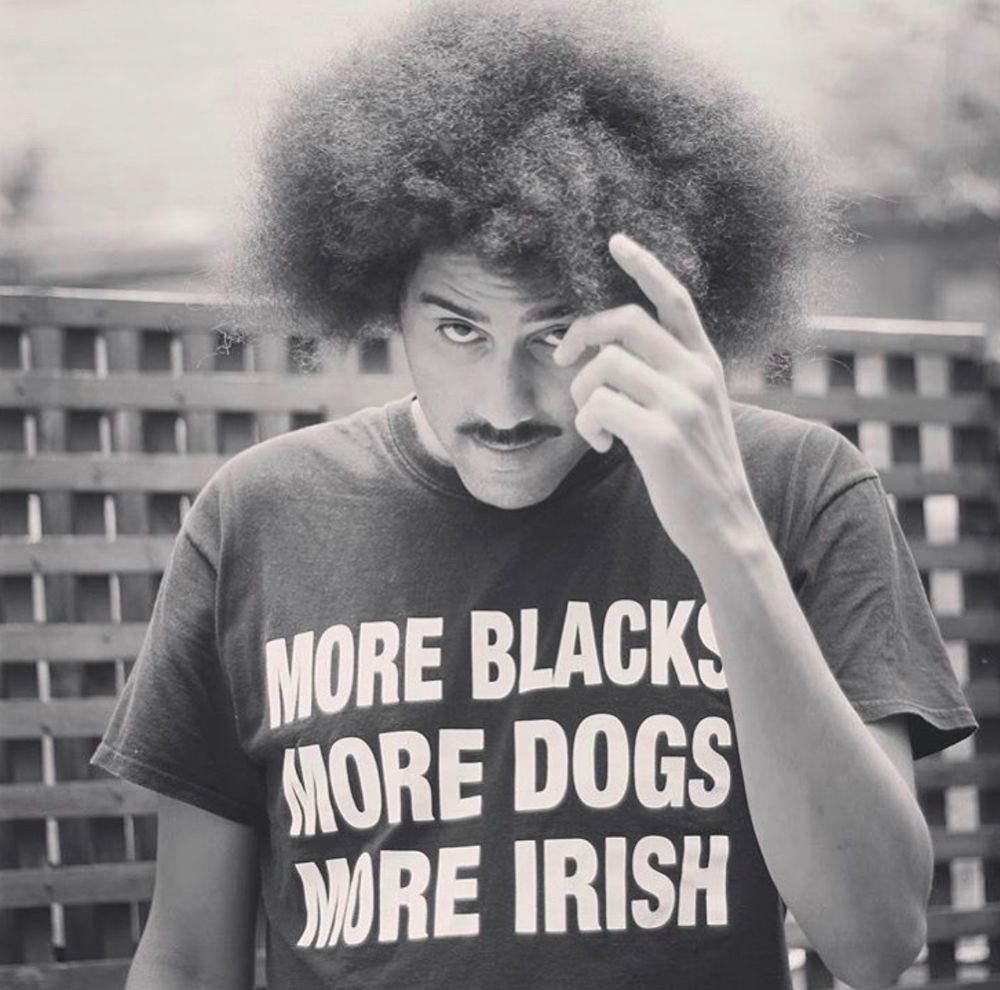
Thin Lizzy's Phil Lynott standing up to the racism of the 1970s
The sketch popped into my mind whilst I was slowly detaching myself from the horrors of blatant racism splashed across my TV screen during the Tommy Robinson’s Unite the Kingdom march.
I could feel the fear rising as I took in the violent scenes, misogyny, and racist chanting.
Far right extremists were on stage; too many to mention. Elon Musk’s said: “You either fight back or you die, that's the truth”.
Seeing march-goers, donned in their Union Jacks ordering Indian food from street vendors, was as satirical as the sketch from Goodness Gracious Me.
I grew up in the era of the National Front. These were the days when pubs had signs up saying “No Blacks, No Irish and No (actual) Dogs”. Illegal segregation in pubs, employment, and accommodation, known as The Colour Bar. Refusing to serve these groups was commonplace.
My parents took the brunt of the racism. I was relatively protected.
I grew up mainly with the Northern Irish, as The Colour Bar meant banished communities were thrown together. I have fond memories of these outcast communities sharing food, being looked after by my Irish neighbour and my parents drinking lots of whisky.
My childhood was awash with Irish and Indian music and people came round to watch Cliff Richard and Elvis Presley movies.
The Colour Bar led to the rise in Desi pubs, where the South Asian communities created inclusive community hubs fusing British pub traditions (ale, darts, pints), alongside Indian food, music, and socialising. I was too young to know that when my parents said they were going to a pub, it would be one of those.
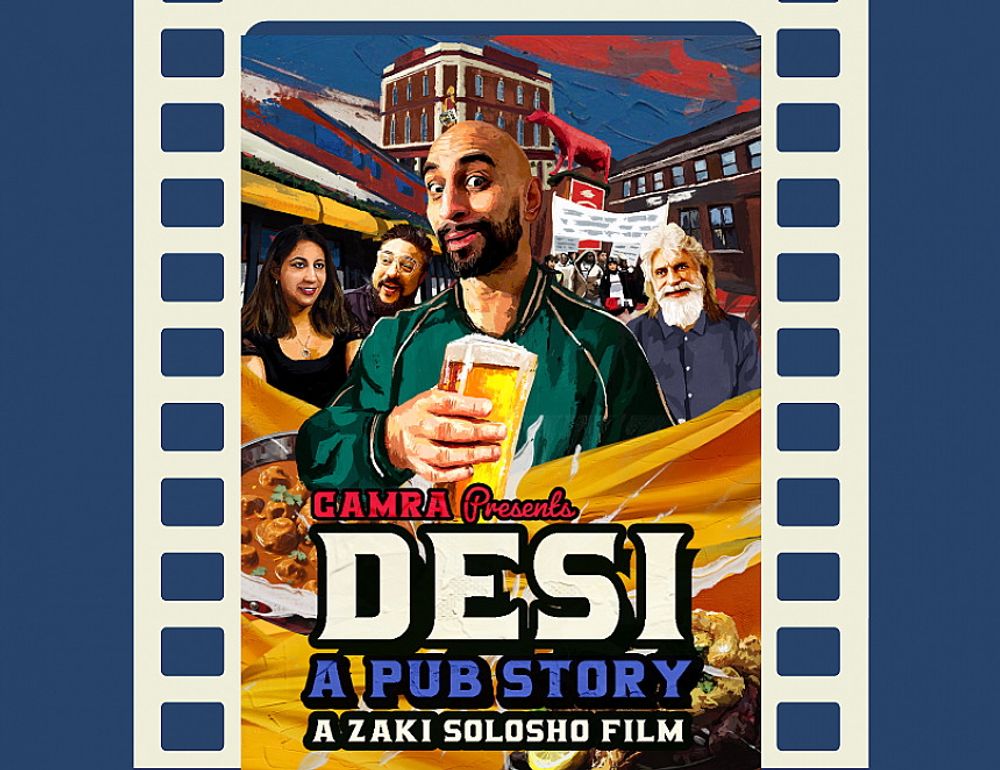
The Desi pub has been a safe haven for Asian and ethnic communities since they first appeared in the 1970s
There are many reasons racism is uprising today - the on-going economic struggles, the Trump effect, Elon Musk fuelling and funding fires and Reform’s Nigel Farage setting the national public and political agenda around race and immigration.
Reform’s Cheshire-based MP Sarah Pochin recently made a disturbing and unsettling outburst on national TV and radio: “It drives me mad when I see adverts full of black people, full of Asian people, full of people that are basically anything other than white.”
Comments like that are when I see my social media explode and yet again, I discover who in my personal social circle has issues with colour.
The Patriotic Flag
The National Front became England’s fourth largest party in the mid-1970s. It used the St George’s Cross and Union Jack as a weapon to intimidate and evoke fear amongst certain communities. Patriotism used as a veil for aggression and bigotry.
During the anti-immigration riots in the summer of 2024, the flags were used to serve this purpose but not to the extent they are now. Those riots left me confined to my small Yorkshire town out of safety unable to attend wine industry events or tastings.
People want to justify and believe that the flags are only in deprived areas. Simply not true, they are in the Cotswolds, across London, Buckinghamshire, Kent. The flags are everywhere. And it’s unsettling. Wherever I see flags, I know to be careful.
After the Unite the Kingdom march, I yet again felt the need to change how I behave and where I go. Every event and wine tasting has to be risk assessed. Do I need a chaperone? Even if I had a chaperone, am I putting them at risk? Do I get to the event and just be in and out?
I think twice before jumping on public transport to head to a city or even a neighbouring town. I find myself driving a lot more.
This is not good for my ability to earn as without attending events, wine tastings and networking, how do I go about picking up ideas and new business? As a journalist how do I actually support and report on the industry?
Over reaction?
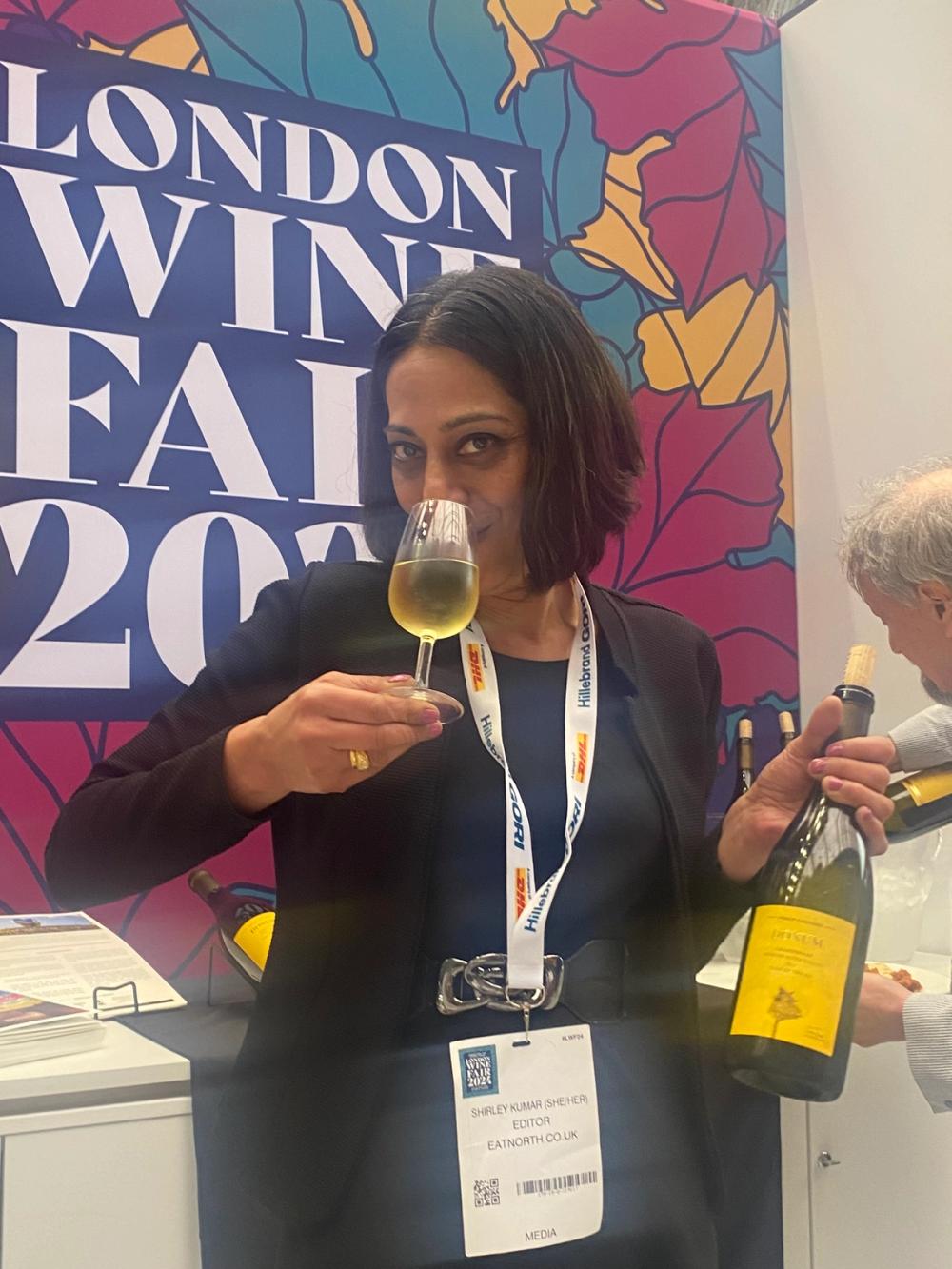
Shirley Kumar has been working as a business journalist in the drinks industry for close to 20 years and says she has never felt as unsafe and vulnerabale trying to do her job and attend wine and drinks events in cities across the UK
I was attending a wine tasting event in Manchester two days after the September march.
On approaching the city by train, a British Transport Police officer advised me: “We are not aware of anything being organised but a bit of friendly advice, don’t go near Piccadilly Gardens today.”
Exactly where I was heading. The majority of the wine tastings are held in that part of the city.
I made it to the event but not without visible worry. I received support as I have been in the wine industry so long. I was walked back to the train by two men from the tasting just so I could feel safe.
Last summer, a similar thing happened after attending a Georgian wine tasting in Manchester. The words from other male attendees of that event were: “If anything is going to happen, it won’t happen with us being with you.”
It’s not a nice feeling to lose so much independence although I appreciate what they did for me.
After the tasting this time round, on the train home, a woman deliberately got up from her seat and sat opposite me. “What foreign name have you got,” she said with a derogatory slur.
“It’s Shirley,” I replied with a dagger look. “It means old meadow in old English.”
Since then, I have heard “go back to your own country” or “where are you from?” countless times. The latter is nearly always a loaded question.
Ironically, the closest I got to actual aggression was in my town. There are no flags in my town, Hebden Bridge, I felt safe to move around normally. I have not really gone anywhere else since the march to avoid potential aggression. It was 3.30pm on a Saturday afternoon, I was walking along the road with my 14-year-old labrador-rottweiler. A man crosses the road; I am watching closely. He moved in close, his face just inches from mine.
“I don’t like brown faces.”
I did something I shouldn’t have done. I fought back. “Have you been on holiday?” I asked. He nods.
“You’re darker than me,” I replied, implying that as a result of his holiday in the sun, he had a sun tan.
My dog gave the most blood curdling growl I have ever heard. He thought twice. But, what if?
Back to the future

Shirley Kumar says the day-to-day racism she experiences as a woman of colour has increased enormously in recent years
My dad came to England in the early Sixties on a free ticket from the government because my grandad fought in the British army. It was a thank you for my grandad’s service during World War 2 and Britain needed to rebuild the country. Letus not forget India was under British occupation for 200 years.
My dad first worked on the railways but left after too much racism. He set up a market stall selling clothes in Manchester then moved into convenience stores. We lived above the shop and moved when he acquired bigger and better shops.
By the Eighties, we were living in Leigh-on-sea, Essex. We were part of the community. Customers would sit in the shop drinking tea and mostly men would sit in the shop for hours watching cricket. People came to our house, and everyone was offered Indian food (my parents were amazing cooks). Everyone knew about my business. A real community. Until it was a Bank Holiday.
“Why can’t I go to the beach,” I would plead? “Because you can’t,” my parents would say.
The shop was closed. All the curtains drawn. TV and radio off.
I didn’t know at the time that the skinheads and National Front were rampaging on Bank Holiday Mondays and anyone of colour was being attacked. Dad still got hit over the head with a bottle in the shop, a few days later, and was in hospital.
I remember a story my dad told me when he first landed in Manchester and headed to a pub. A pint was thrown at him, and he was told to go home.
“If you tell me how long Britain has occupied India and get it right, I will get on the next flight back ‘home.’ If you get it wrong, you need to buy me a pint (he had realised he was not going to be served anyway) and sit with me,” said my dad.
The man got it wrong. My dad got his pint.
Just after the Unite the Kingdom march, whilst on tour with the electronic music band, Wolfgang Flür, (ex-Kraftwerk), British born Asian, Peter Duggal, went to a pub in Lincoln to watch a football match after completing a sound check at a nearby venue.
He is a friend. He described on social media that when he walked through the door, he got the “you are not welcome stare”.
A staff member aggressively and racially refused to serve him an IPA, stating the pub didn’t sell them, when at least four IPAs were clearly labelled. On persistence, he did eventually get a drink but had to “pay upfront”.
He has lodged a complaint with the brewery, and they are dealing with it. I personally had never felt this would happen to me. Now I am aware it could happen to me.
A pint, a policy, and a promise
This serves as a reminder to hospitality and drinks businesses to implement clear anti-discrimination and anti-harassment policy that is embedded in corporate culture and visibly led by senior management.
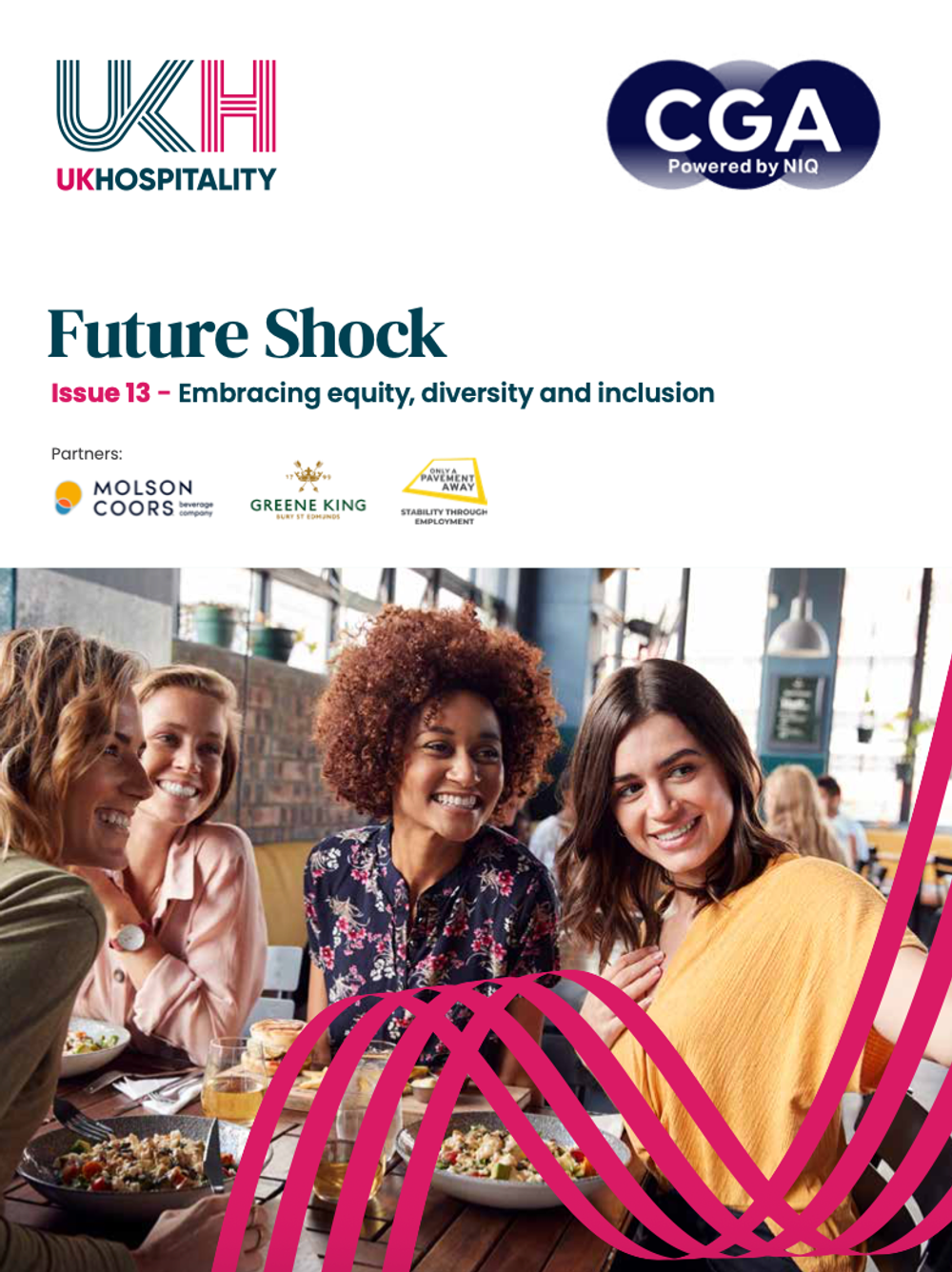
There is advice and support for drinks businesses and the hospitality sector widely available on the steps they need to put in place to help support people of colour and at risk members of staff and customers
UKHospitality guidance states this policy should outline explicit consequences for breaches by staff or customers, such as termination of employment or refusal of service and, include additional protection for minority ethnic staff who may face targeted harassment.
Under the Equality Act 2010 and ACAS guidance, employers have a legal duty to take all reasonable steps to prevent discrimination, including carrying out proactive risk assessments, providing regular equality, diversity, and inclusion (EDI) training, and maintaining clear reporting mechanisms.
Businesses should also adopt a public stance rejecting racism and extremist ideologies, and work with local authorities and community groups to promote inclusion and manage potential tensions.
Under Section 29 of the Act, it is unlawful to refuse service based on race, colour, nationality or ethnic origin and businesses can be held liable for discriminatory acts by their employees if they cannot show they took reasonable preventive measures.
If a venue fails to act, affected customers could bring a civil claim for discrimination, the Equality and Human Rights Commission (EHRC) could launch an investigation, and the licensing authority may review or even revoke the premises licence if the venue is deemed not ‘fit’ to operate.
Beyond legal penalties, inaction risks severe reputational harm, media scrutiny, and a loss of public trust.
We all have our part to play. Be it legally or morally. This has been a difficult article to write but the importance of helping the industry understand the significance the current toxic climate is having on all people of colour, including those born in the country, overrides any distress I may have experienced, putting mine and my family’s experiences into words.
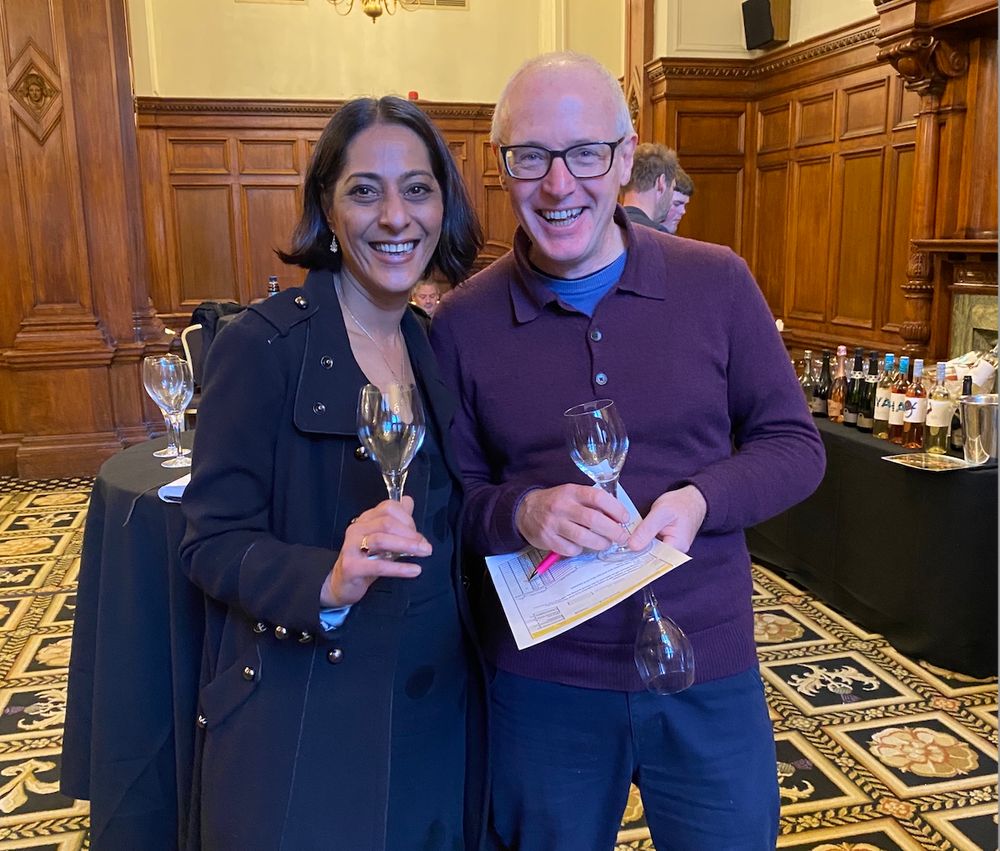
Shirley Kumar says she has to think twice about attending any wine event due to the increase in racial tensions but is also keen to stress the support and allyship she gets from members of the drinks trade when she does
The drinks and hospitality industry is key to helping push the blatant racism back into not being acceptable or the norm. I am currently not signing up for many tastings as I don’t know if I can go; I must watch the current mood in the country and so do you.
If your staff of colour are actively selling wine, how are they being protected?
How are they getting to work? How are they feeling? If they work in retail, are they left alone and not just in the evening?
What policies are in place to protect your staff, not just from expected verbal abuse, but potential threats of violence?
How are you using your marketing or community involvement to promote diversity and inclusion?
Are you thinking about the location of the venue before organising your tastings?
What if you run a bar or restaurant, are you showing zero tolerance to racism to your staff, it may be that you bar the offender but, what happens when that member of staff needs to go home or are out and about in their personal lives, especially if the offender is local. The list goes on.
Businesses are part of the community, and it is these communities that are essential to stopping the rise of the far right.
- Part two of Shirley Kumar’s analysis will look into the policies and procedures drinks companies are taking, and need to take, to safeguard their staff and customers and what wider steps the drinks industry as a whole is taking to make their workplaces as safe and welcoming to people of colour and all backgrounds and nationalities. If you would like to take part and share what action’s your business is taking then email Shirley on editor@eatnorth.co.uk.
- If you would like to follow up on this article and share any of your experiences or the steps your business is taking to address racial tensions and the impact on staff then contact Richard Siddle on richardsiddle5@gmail.com.
- You can follow Shirley Kumar’s work on the drinks industry and hospitality sector at her business and consumer website Eat North.
